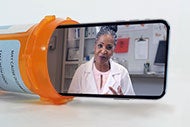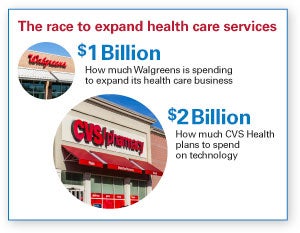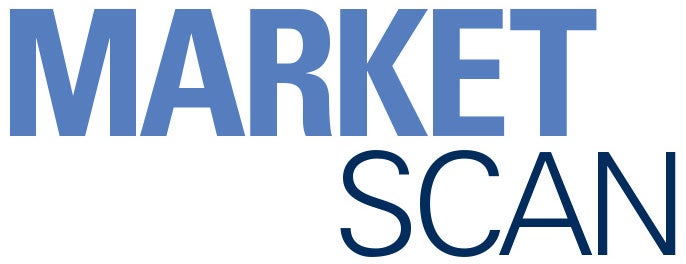

Is It Time to Partner with Retail Pharmacies on Service Expansion?
 It’s getting tougher to find a retail pharmacy chain that isn’t expanding deeper into providing web-driven digital health care services. Rite Aid became the latest, saying it will launch telehealth kiosks with InTouch Health’s virtual care platform at 25 of Rite Aid’s East Coast RediClinic Express clinics and 36 H-E-B grocery stores in Texas.
It’s getting tougher to find a retail pharmacy chain that isn’t expanding deeper into providing web-driven digital health care services. Rite Aid became the latest, saying it will launch telehealth kiosks with InTouch Health’s virtual care platform at 25 of Rite Aid’s East Coast RediClinic Express clinics and 36 H-E-B grocery stores in Texas.
Rite Aid’s telehealth point of differentiation will be using trained medical assistants to help patients with point-of-care testing. The kiosks are private and the medical assistant will help take vital signs and conduct a medical survey before the patient is connected via a secure two-way, high-definition audio/video system with a RediClinic clinician for further care. The doctor then will diagnose the patient, issue a treatment plan and, if needed, send a prescription to a Rite Aid pharmacy or refer the patient to another provider.
Rival drugstore chains Walgreens Boots Alliance, Walmart and CVS Health also have been making strategic moves to build out their digital health care services and transform care delivery in settings more convenient to patients. Walgreens increasingly has been active lately, upping its investments and establishing separate strategic partnerships with Microsoft.
The Microsoft partnership will combine Microsoft’s cloud and artificial intelligence platform Azure with Walgreens’ outpatient health care and retail services. The multiyear agreement calls for a research and development investment to build new health care solutions designed to improve outcomes and lower care costs.
Walgreens also has been steadily building the power of its popular Find Care website and app. Find Care connects an estimated 5 million consumers a month via video or phone with doctors from any of 37 health care provider organizations now partnering with Walgreens, including Advocate Health Care, Providence St. Joseph Health and NewYork-Presbyterian Hospital as well as telehealth provider MDLive, which offers behavioral telehealth services and non-acute urgent care. Users also can talk to a therapist or dermatologist online. In addition, NewYork-Presbyterian has placed mobile health kiosks in some Walgreens stores in New York City.
Media reports estimate Walgreens is laying out roughly $1 billion for its health care business expansion. CVS Health plans to shell out more than $2 billion on technology — primarily to expand digital health care services — over the next two years. And Amazon is busy determining how to integrate its $753 million acquisition of PillPack.com into its broader health care and e-commerce strategy.
 CVS Health recently announced aggressive expansion plans for its HealthHub store format, which will provide in-store dietitians to provide one-on-one and group counseling. The 1,500 HealthHub stores slated to be in place by the end of 2021 also will offer personalized pharmacy support and MinuteClinic services to help patients manage chronic conditions and reduce care costs.
CVS Health recently announced aggressive expansion plans for its HealthHub store format, which will provide in-store dietitians to provide one-on-one and group counseling. The 1,500 HealthHub stores slated to be in place by the end of 2021 also will offer personalized pharmacy support and MinuteClinic services to help patients manage chronic conditions and reduce care costs.
This continued expansion by retail pharmacy giants into health care presents interesting partnership opportunities for hospitals and health systems. Value-based reimbursement aligns incentives among different segments of health care — in this case, hospitals and retail pharmacies. By working together, providers and retailers will be able to better address issues such as medication adherence, directing patients to the most appropriate care setting and avoiding costly ED visits when appropriate.



